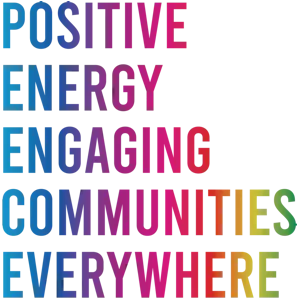Depression commonly manifests physically, through stomach pains, headaches, disrupted or excessive sleep, and motor control difficulty. While the causes of depression are unknown, a predisposition for it runs in families and it can be triggered by trauma and adverse life circumstances. Depression is diagnosed more frequently in women and tends to display differently in women than in men.
People tend to suffer higher rates of depression after giving birth and in late fall. Depression and anxiety often exacerbate each other and people with depression commonly have difficulty concentrating on tasks and conversations. Some people abuse alcohol and drugs or overeat as a way of coping, causing them to develop other medical problems. Depressed people are also at increased risk for self-harm.
Depression is a mental illness which is characterized by prolonged emotional symptoms including:
- Apathy
- Sadness
- Guilt
- Exhaustion
- Irritability
Diagnosing depression involves a psychiatric evaluation and physical tests to determine whether a person’s symptoms are actually being caused by a different disorder. A person must have been experiencing symptoms for at least two weeks to be diagnosed with depression. Every case is unique and requires individual attention, but there are a number of effective complementary ways of treating depression, including:
- Talk therapy
- Medication
- Adopting a healthier lifestyle
Panic attacks are brief episodes of extreme fear. They may be mistaken for heart attacks or strokes, but are actually psychological rather than physical. Panic attacks can occur suddenly and usually peak within ten minutes. Most panic attacks end within 20 to 30 minutes.
Some symptoms include:
- Chills
- Nausea
- Sweating
- Chest pain
- Palpitations
- Shaking
- Feelings of suffocation
Sometimes panic attacks are isolated incidents, but if a person has had at least two panic attacks and lives in fear of having another, they may have panic disorder. A panic attack can happen without an obvious cause, but people with panic disorder may develop phobias related to something they associate with panic attacks, including open spaces, and large crowds.
Panic disorder is classified as an anxiety disorder, and like other forms of anxiety, it is commonly treated with a combination of therapy, medications, and healthy lifestyle changes. Anxiety patients are also encouraged to do breathing exercises, get regular exercise, and to avoid stimulants.
Everyone encounters stress during their lives at one point—never-ending bills, demanding schedules, work, and family responsibilities—and that can make stress seem inescapable and uncontrollable. Stress management skills are designed to help a person take control of their lifestyle, thoughts, and emotions and teach them healthy ways to cope with their problems.
Find the Cause
The first step in stress management is identifying your stressors. While this sounds fairly easy—it’s not hard to point to major changes or a lot of work piling up—chronic stress can be complicated, and most people don’t realize how their habits contribute to their stress. Maybe work piling up isn’t from the actual demands of your job, but more so from your procrastination. You have to claim responsibility for the role you play in creating your stress or you won’t be able to control it.
Strategies for Stress Management
Once you’ve found what causes your stress, focus on what you can control. Eliminate the realistic stressors and develop consistent de-stressing habits. Instead of watching TV or responding to texts in bed after work - take a walk, or read a book. Maintaining a healthy diet, exercising regularly, and getting enough quality sleep, will ease feelings of stress and help you relax.
Also, make a conscious effort to set aside time for yourself and for relaxation. Alone time can be whatever you need it to be. Some people like doing activities such as tai chi, yoga, or meditation, but you can also treat yourself to something simple, like taking a bubble bath, listening to music, or watching a funny movie.
Finally, don’t feel like you have to solve your stress on your own. Reach out to your family and friends. Whether you need help with a problem or just need someone to listen, find a person who will be there to positively reinforce and support you. If stress becomes chronic, don’t hesitate to seek the help of a therapist.


